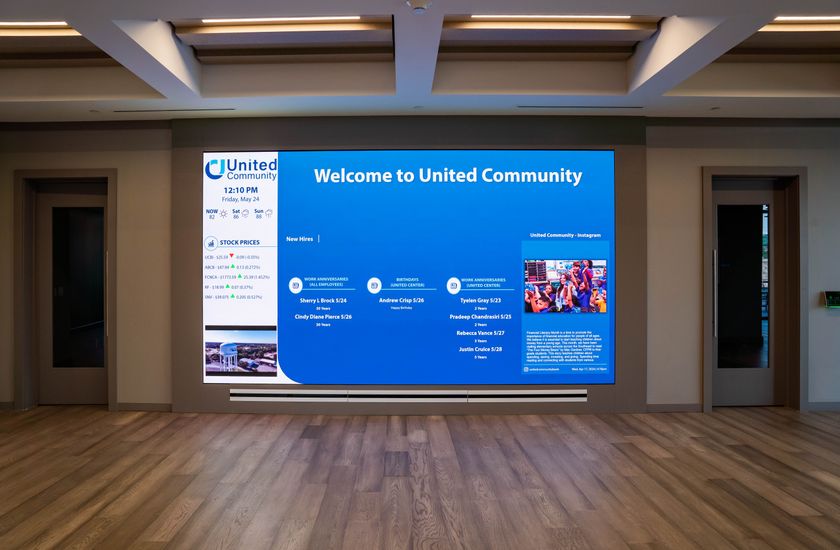
I am often asked what my career is. After trying to explain all the intricacies of working with an independent audiovisual design consultant in one or two sentences, it is inevitably followed by “So how did you get into that?” For many of my colleagues and me, it is this question that requires a long and convoluted response describing intertwining gigs and jobs in related industries or fields.
Luckily in my region, many contractors and consultants are expressing the need to expand and find “good guys." So where are they? And what are we as an industry doing to develop and cultivate them? The only answers I can come up with are just as convoluted as the story that brought industry veterans to their current positions.
This heritage fosters some of the most intangible skills and attitudes. Most of my personal experience has been from theatre and concert houses where the famed “show must go on” mentality is predominant as is the pure ingenuity of problem solving skills. Although theatre/concert work is very different from the corporate world of consulting, the skills developed doing this work transfer seamlessly.
I suspect we draw on resources from related fields and industries due to the countless facets our industry envelopes; from theatre to production, concerts to boardrooms, audio, video, control, and most recently, IT . In essence, we have a technical version of a cultural melting pot; we are a multitechnical industry, if you will.
Not only do the various backgrounds and training listed above contribute to the charm and vast dynamic skillsets of the people in the audiovisual industry, but it also expands the horizon of our industry. It gives us connections and insight to various other industries allowing us to specialize or market to sectors otherwise unknown to us. Conversely, it begs the question “Is this the best background for careers in our industry?”
Strangely enough, and in contrast with pretty much any other major industry, the one avenue of training that we do not see often is specific formal training. In my opinion, this is primarily due to the lack of programs available in the post-secondary education system. Although there are many media arts, theatre, and recording programs available, all of which have their merits and relevance to our industry, very few specifically focus on the design and consulting world.
I suspect that the InfoComm CTS and sub designations will begin to frame formal course outlines. Technical knowledge is only a portion of the big picture with respect to the required knowledge base to successfully manage an audiovisual project. We must also be versed in contracts, construction process, project management, sales, shameless self-promotion, and the list goes on.
Our firm, Mulvey & Banani International, has drawn from all of the above paths to reach a state of AV enlightenment, building a coherent, vastly educated, experienced team. There is no argument that each path is viable and that each can lead to great success, but it is the combined experience of our team that stands out to our clients and has allowed us to deliver a wide range of successful audiovisual projects.
Gregory Rushton is an associate at Mulvey & Banani International based in Toronto, Ontario, Canada.
Jack of All Trades: The Perfect Education
Most directly related industries such as recording arts, theatre, film, and television have well-established curriculum covering technical education. Other supplementary related industries include architecture, interior and industrial design, legal, construction, and project management, to name a few.
While it may be feasible to obtain formal training in one or two directly related industries, it is work related to the supplementary industries that make up a significant amount of our day-to-day activities. These are all vast fields requiring significant time and financial investments with respect to attaining formal education and training.
Very few individuals have formal training in all of these fields, creating a gap in industry-specific training. InfoComm International has very successfully implemented the CTS certification program, an internationally recognized certification that evaluates knowledge of the direct and supplementary industries noted above. Furthermore, they offer a plethora of individual courses to hone skills in a particular area.
The pertinent courses required to establish a comprehensive audiovisual curriculum already exist. Once compiled, a comprehensive program could easily be marketed to reputable post-secondary institutions. Not only would this allow us to draw from a more educated pool of young audiovisual prospects, but would also bring much needed industry awareness to youth; something near and dear to InfoComm, who have experienced success marketing through their AV Week program.
As our industry grows and becomes more integrated (or rather swallowed up!) by IT, educational facilities will have no choice but to consider specialized training in audiovisual design and consulting. This will lead to a win-win situation for all.
The two main avenues from which up and coming designers obtain their education:
Field Training
Examples:
* Theatre / Television
* AV Installer
* Production Company (incl. Roadies)
Pros:
* Real life experiences in various situations
* Often good attitude, particularly related to resolving issues on the fly
Cons:
* Industry specific knowledge can get those that don’t know when to listen or ask questions into trouble
* Often develop “personalized” solutions without true understanding of implications past “well it fixed the problem this time”
Related Industry Training
Examples:
* Programming
* Recording/Media Arts
* Engineering
* Sales
Pros:
* Great overall foundation of knowledge
* Advance understanding of theories, concepts, and formulas
Cons:
* Does not always apply to the real world
* Limited practical experience










